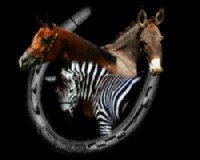
Rarity Acres
Rarity Acres Home
---------------
Zebra Information
---------------
Zebras
---------------
Zebra Stallion
---------------
Zorse
---------------
Zony
---------------
Zonkey
---------------
Donkeys
---------------
Twin Donkey Foals!
---------------
Mares
----------
Geldings
---------------
Ponies
---------------
Foals
---------------
For Sale
---------------
Videos
---------------
Contact Us
---------------
Visit our FB page!